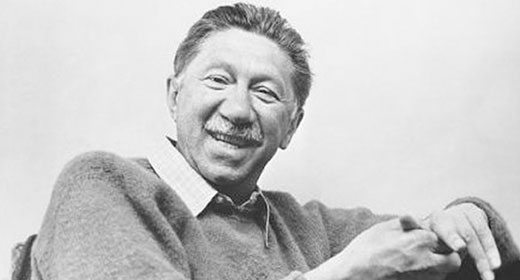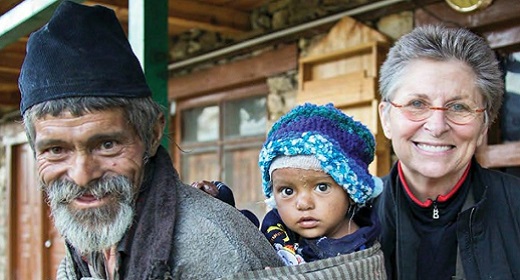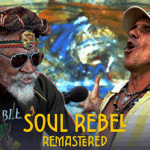When Abraham Maslow first shared his pioneering vision of a “comprehensive human psychology” in early 1968, he stood at the pinnacle of his international acclaim and influence.
 His election as president of the American Psychological Association some months before capped an illustrious academic career spanning more than 35 productive years, during which Maslow had steadily gained the high regard–even adulation–of countless numbers of colleagues and former students. His best-known books, Motivation and Personality and Toward a Psychology of Being, were not only being discussed avidly by psychologists, but also by professionals in fields ranging from management and marketing to education and counseling. Perhaps even more significantly, Maslow’s iconoclastic concepts like peak experience, self-actualization, and synergy had even begun penetrating popular language.
His election as president of the American Psychological Association some months before capped an illustrious academic career spanning more than 35 productive years, during which Maslow had steadily gained the high regard–even adulation–of countless numbers of colleagues and former students. His best-known books, Motivation and Personality and Toward a Psychology of Being, were not only being discussed avidly by psychologists, but also by professionals in fields ranging from management and marketing to education and counseling. Perhaps even more significantly, Maslow’s iconoclastic concepts like peak experience, self-actualization, and synergy had even begun penetrating popular language.
Nevertheless, it was a very unsettling time for him: Recovering from a major heart attack, the temperamentally restless and ceaselessly active Maslow was finding forced convalescence at home to be almost painfully unbearable. Suddenly, his extensive plans for future research, travel, and lecturing had to be postponed. Although Maslow hoped for a speedy recovery, frequent chest pains induced a keen sense of his own mortality. As perhaps never before, he began to ponder his career’s accomplishments and his unrealized goals.
In 1968 PSYCHOLOGY TODAY was a precocious one-year-old upstart, but such was its prestige that it was able to attract perhaps the country’s most famous psychologist for an interview.
Maslow likely regarded the PT interview as a major opportunity to outline his “comprehensive human psychology” and the best way to actualize it. At 60, he knew that time permitted him only to plant seeds (in his own metaphor) of research and theory and hope that later generations would live to see the flowering of human betterment. Perhaps most prescient at a time of global unrest is Maslow’s stirring vision of “building a psychology for the peace table.” It was his hope that through psychological research, we might learn how to unify peoples of differing racial and ethnic origins, and thereby create a world of peace.
Although the complete audiotapes of the sessions, conducted over three days, disappeared long ago under mysterious circumstances, the written condensation that remains provides a fascinating and still-relevant portrait of a key thinker at the height of his prowess. Intellectually, Maslow was decades ahead of his time; today the wide-ranging ideas he offers here are far from outdated. Indeed, after some twenty-odd years, they’re still on the cutting edge of American psychology and social science. Emotionally, this interview is significant for the rare—essentially unprecedented–glimpse it affords into Maslow’s personal history and concerns: his ancestry and upbringing; his mentors and ambitions; his courtship, marriage, and fatherhood; and even a few of his peak experiences.
Maslow continued to be puzzled and intrigued by the more positive human phenomenon of self-actualization. He was well aware that his theory about the “best of humanity” suffered from methodological flaws. Yet he had become ever more convinced of its intuitive validity, that self-actualizers provide us with clues to our highest innate traits: love and compassion, creativity and aesthetics, ethics and spirituality. Maslow longed to empirically verify this lifelong hunch.
In the two years of his life that remained, this gifted psychologist never wrote an autobiography, nor did he ever again bare his soul in such a public and wide-ranging way. It may have been that Maslow regarded this unusually personal interview as a true legacy. More than 20 years later, it remains a fresh and important document for the field of psychology.
Mary Harrington Hall, for PSYCHOLOGY TODAY: A couple of William B. Yeats’s lines keep running through my head: “And in my heart, the daemons and the gods wage an eternal battle and I feel the pain of wounds, the labor of the spear.” How thin is the veneer of civilization, and how can we understand and deal with evil?
Abraham H. Maslow: It’s a psychological puzzle I’ve been trying to solve for years. Why are people cruel and why are they nice? Evil people are rare, but you find evil behavior in the majority of people. The next thing I want to do with my life is to study evil and understand it.
PT: By evil here, I think we both mean destructive action without remorse. Racial prejudice is an evil in our society which we must deal with. And soon. Or we will go down as a racist society.
Maslow: You know, when I became A.P.A. president, the first thing I wanted to do was work for greater recognition for the Negro psychologists. Then I found that there were no Negroes in psychology, at least not many. They don’t major in psychology.
PT: Why should they? Why would I think that psychology would solve social problems if I were a Negro living in the ghetto, surrounded by despair?
Maslow: Negroes have really had to take it. We’ve given them every possible blow. If I were a Negro, I’d be fighting, as Martin Luther King fought, for human recognition and justice. I’d rather go down with my flag flying. If you’re weak or crippled, or you can’t speak out or fight back in some way, then people don’t hesitate to treat you badly.
PT: Could you look at evil behavior in two ways: evil from below and evil from above? Evil as a sickness and evil as understood compassionately?
Maslow: If you look at evil from above, you can be realistic. Evil exists. You don’t give it quarter, and you’re a better fighter if you can understand it. You’re in. the position of a psychotherapist. In the same way, you can look at neurosis. You can see neurosis from below–as a sickness–as most psychiatrists see it. Or you can understand it as a compassionate man might: respecting the neurosis as a fumbling and inefficient effort toward good ends.
PT: You can understand race riots in the same way, can’t you?
Maslow: If you can only be detached enough, you can feel that it’s better to riot than to be hopeless, degraded, and defeated. Rioting is a childish way of trying to be a man, but it takes time to rise out of the hell of hatred and frustration and accept that to be a man you don’t have to riot.
PT: In our society, we see all behavior as a demon we can vanquish and banish, don’t we? And yet good people do evil things.
Maslow: Most people are nice people. Evil is caused by ignorance, thoughtlessness, fear, or even the desire for popularity with one’s gang. We can cure many such causes of evil. Science is progressing, and I feel hope that psychology can solve many of these problems. I think that a good part of evil behavior bears on the behavior of the normal.
PT: How will you approach the study of evil?
Maslow: If you think only of evil, then you become pessimistic and hopeless like Freud. But if you think there is no evil, then you’re just one more deluded Pollyanna. The thing is to try to understand and realize how it’s possible for people who are capable of being angels, heroes, or saints to be bastards and killers. Sometimes, poor and miserable people are hopeless. Many revenge themselves upon life for what society has done to them. They enjoy hurting.
PT: Your study of evil will have to be subjective, won’t it? How can we measure evil in the laboratory?
Maslow: All the goals of objectivity, repeatability, and preplanned experimentation are things we have to move toward. The more reliable you make knowledge, the better it is. If the salvation of man comes out of the advancement of knowledge–taken in the best sense–then these goals are part of the strategy of knowledge.
PT: What did you tell your own daughters, Ann and Ellen, when they were growing up?
Maslow: Learn to hate meanness. Watch out for anybody who is mean or cruel. Watch out for people who delight in destruction.
PT: How would you describe yourself? Not in personality, because you’re one of the warmest and sweetest men I’ve ever met. But who are you?
Maslow: I’m someone who likes plowing new ground, then walking away from it. I get bored easily. For me, the big thrill comes with the discovering.
PT: Psychologists all love Abe Maslow. How did you escape the crossfire?
Maslow: I just avoid most academic warfare. Besides, I had my first heart attack many years ago, and perhaps I’ve been unconsciously favoring my body. So I may have avoided real struggle. Besides, I only like fights I know I can win, and I’m not personally mean.
PT: Maybe you’re just one of the lucky few who grew up through a happy childhood without malice.
Maslow: With my childhood, it’s a wonder I’m not psychotic. I was the little Jewish boy in the non-Jewish neighborhood. It was a little like being the first Negro enrolled in the all-white school. I grew up in libraries and among books, without friends.
Both my mother and father were uneducated. My father wanted me to be a lawyer. He thumbed his way across the whole continent of Europe from Russia and got here at the age of 15. He wanted success for me. I tried law school for two weeks. Then I came home to my poor father one night after a class discussing “spite fences” and told him I couldn’t be a lawyer. “Well, son,” he said, “what do you want to study?” I answered: “Everything.” He was uneducated and couldn’t understand my passion for learning, but he was a nice man. He didn’t understand either that at 16, I was in love.
PT: All 16-year-olds are in love.
Maslow: Mine was different. We’re talking about my wife. I loved Bertha. You know her. Wasn’t I right? I was extremely shy, and I tagged around after her. We were too young to get married. I tried to run away with her.
PT: Where did you run?
Maslow: I ran to Cornell for my sophomore year in college, then to Wisconsin. We were married there when I was 20 and Bertha was 19. Life didn’t really start for me until I got married.
I went to Wisconsin because I had just discovered John B. Watson’s work, and I was sold on behaviorism. It was an explosion of excitement for me. Bertha came to pick me up at New York’s 42nd Street library, and I was dancing down Fifth Avenue with exuberance. I embarrassed her, but I ,was so excited about Watson’s behaviorist program. It was beautiful. I was confident that here was a real road to travel: solving one problem after another and changing the world.
PT: A clear lifetime with built-in progress guaranteed.
Maslow: That was it. I was off to Wisconsin to change the world. I went there to study with psychologist Kurt Koffka, biologist Hans Dreisch, and philosopher Alexander Meiklejohn. But when I showed up on the campus, they weren’t there. They had just been visiting professors, but the lying catalog had included them anyway.
Oh, but I was so lucky, though. I was young Harry Harlow’s first doctoral graduate. And they were angels, my professors. I’ve always had angels around. They helped me when I needed it, even fed me. Bill Sheldon taught me how to buy a suit. I didn’t know anything of amenities. Clark Hull was an angel to me, and later, Edward L. Thorndike.
PT: You’re an angelic man. I’ve heard too many stories to let you deny it. What kind of research were you doing at Wisconsin?
Maslow: My whole training at Wisconsin was behaviorist. I didn’t question it until I began reading some other sources. Later, I began studying the Rorschach test.
At the same time, I stumbled into embryology and read Ludwig von Bertalanffy’s Modern Theories of Development. I had already become disillusioned with Bertrand Russell and with English philosophy generally. Then, I fell in love with Alfred North Whitehead and Henri Bergson. Their writings destroyed behaviorism for me without my recognizing it.
When my first baby was born, that was the thunderclap that settled things. I looked at this tiny, mysterious thing and felt so stupid. I felt small, weak, and feeble. I’d say that anyone who’s had a baby couldn’t be a behaviorist.
PT: As you propose new ideas, and blaze new ground, you’re bound to be criticized, aren’t you?
Maslow: I have worked out a lot of good tricks for fending off professional attacks. We all have to do that. A good, controlled experiment is possible only when you already know a hell of a lot. If I’m a pioneer by choice and I go into the wilderness, how am I going to make careful experiments? If I tried to, I’d be a fool. I’m not against careful experiments. But rather, I’ve been working with what I call “growing tip” statistics.
With a tree, all the growth takes place at the growing tips. Humanity is exactly the same. All the growth takes place in the growing tip: among that one percent of the population. It’s made up of pioneers, the beginners. That’s where the action is.
PT: You were the one who helped publish Ruth Benedict’s work on synergy. What’s it about?
Maslow: That it’s possible to set up social institutions that merge selfishness and unselfishness, so that you can’t benefit yourself without benefiting others. And the reverse.
PT: How can psychology become a stronger force in our society?
Maslow: We all should look at the similarities within the various disciplines and think of enlarging psychology. To throw anything away is crazy. Good psychology should include all the methodological techniques, without having loyalty to one method, one idea, or one person.
PT: I see you as a catalyst and as a bridge between many disciplines, theories, and philosophies.
Maslow: My job is to put them all together. We shouldn’t have “humanistic psychology.” The adjective should be unnecessary. I’m not antibehaviorist. I’m antidoctrinaire.
PT: Abe, when you look back on your own education, what kind would you recommend for others?
Maslow: The great educational experiences of my life were those that taught me most. They taught me what kind of a person I was.
These were experiences that drew me out and strengthened me.Psychoanalysis was a big thing for me. And getting married. Marriage is a school itself. Also, having children. Becoming a father changed my whole life. It taught me as if by revelation. And reading particular books. William Graham Sumner’s Folkways was a Mount Everest in my life: It changed me.
My teachers were the best in the world. I sought them out: Erich Fromm, Karen Horney, Ruth Benedict, Max Wertheimer, Alfred Adler, David Levy, and Harry Harlow. I was there in New York City during the 1930s when the wave of distinguished 6migr6s arrived from Europe.
PT: Not everyone can have such an illustrious faculty.
Maslow: It’s the teacher who’s important. And if this is so, then what we are doing with our whole educational structure–with credits and the idea that one teacher is as good as another? You look at the college catalog and it says English 342. It doesn’t even bother to tell you the instructor’s name, and that’s insane. The purpose of education–and of all social institutions–is the development of full humaneness. If you keep that in mind, all else follows. We’ve got to concentrate on goals.
PT: It’s like the story about the test pilot who radioed back home: “I’m lost, but I’m making record time.”
Maslow: If you forget the goal of education, then the whole thing is lost.
PT: If a rare, self-actualizing young psychologist came to you today and said, “What’s the most important thing I can do in this time of crisis?”, what advice would you give?
Maslow: I’d say: Get to work on aggression and hostility. We need the definitive book on aggression. And we need it now. Only the pieces exist: the animal stuff, the psychoanalytic stuff, the endocrine stuff. Time is running out. A key to understanding the evil which can destroy our society lies in this understanding.
There’s another study that could be done. I’d like to test the whole, incoming freshman class at Brandeis University in various ways:psychiatric interviews, personality tests, everything. I want to follow them for four years of college. For a beginning, I want to test my theory that emotionally healthy people perceive better.
PT: You could make the college study only a preliminary, and follow them through their whole life span, the way Lewis Terman did with his giftedkids.
Maslow: Oh yes! I’d like to know: How good a father or mother does this student become? And what happens to his/her children? This kind of long-term study would take more time than I have left. But that ultimately doesn’t make any difference. I like to be the first runner in the relay race. I like to pass on the baton to the next person.
Edward Hoffman received his doctorate from the University of Michigan. A clinical psychologist on Long Island, he is the author of several books, including The Right to be Human: A Biography of Abraham Maslow (Tarcher).









































